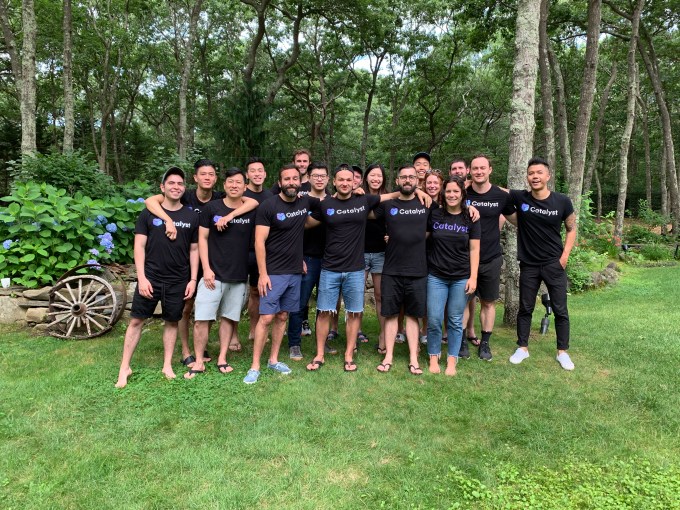Managing your customers has changed a lot in the past decade. Out are the steak dinners and ballgame tickets to get a sense of a contract’s chance at renewal, and in are churn analysis and a whole bunch of data science to learn whether a customer and their users like or love your product. That customer experience revolution has been critical to the success of SaaS products, but it can remain wickedly hard to centralize all the data needed to drive top performance in a customer success organization.
That’s where Catalyst comes in. The company, founded in New York City in 2017 and launched April last year, wants to centralize all of your disparate data sources on your customers into one easy-to-digest tool to learn how to approach each of them individually to optimize for the best experience.
The company’s early success has attracted more top investors. It announced today that it has raised a $15 million Series A led by Vas Natarajan of Accel, who previously backed enterprise companies like Frame.io, Segment, InVision, and Blameless. The company had previously raised $3 million from NYC enterprise-focused Work-Bench and $2.4 million from True Ventures. Both firms participated in this new round.
Catalyst CEO Edward Chiu told me that Accel was attractive because of the firm’s recent high-profile success in the enterprise space, including IPOs like Slack, PagerDuty, and CrowdStrike.
When we last spoke with Catalyst a year and a half ago, the firm had just raised its first seed round and was just the company’s co-founders — brothers Edward and Kevin Chiu — and a smattering of employees. Now, the company has 19 employees and is targeting 40 employees by the end of the year.

In that time, the product has continued to evolve as it has worked with its customers. One major feature of Catalyst’s product is a “health score” that determines whether a customer is likely to grow or churn in the coming months based on ingested data around usage. CEO Chiu said that “we’ve gotten our health score to be very very accurate” and “we have the ability to take automated action based on that health score.” Today, the company offers “prefect sync” with Salesforce, Mixpanel, Zendesk, among other services, and will continue to make investments in new integrations.
One high priority for the company has been increasing the speed of integration when a new customer signs up for Catalyst. Chiu said that new customers can be onboarded in minutes, and they can use the platform’s formula builder to define the exact nuances of their health score for their specific customers. “We mold to your use case,” he said.
One lesson the company has learned is that as success teams increasingly become critical to the lifeblood of companies, other parts of the organization and senior executives are working together to improve their customer’s experiences. Chiu told me that the startup often starts with onboarding a customer success team, only to later find that C-suite and other team leads have also joined and are also interacting together on the platform.
An interesting dynamic for the company is that it does its own customer success on its customer success platform. “We are our own best customer,” Chiu said. “We login every day to see the health of our customers… our product managers login to Catalyst every day to read product feedback.”
Since the last time we checked in, the company has added a slew of senior execs, including Cliff Kim as head of product, Danny Han as head of engineering, and Jessica Marucci as head of people, with whom the two Chius had worked together at cloud infrastructure startup DigitalOcean.
Moving forward, Chiu expects to invest further in data analysis and engineering. “One of the most unique things about us is that we are collecting so much unique data: usage patterns, [customer] spend fluctuations, [customer] health scores,” Chiu said. “It would be a hugely missed opportunity not to analyze that data and work on churn.”
Comments
Post a Comment